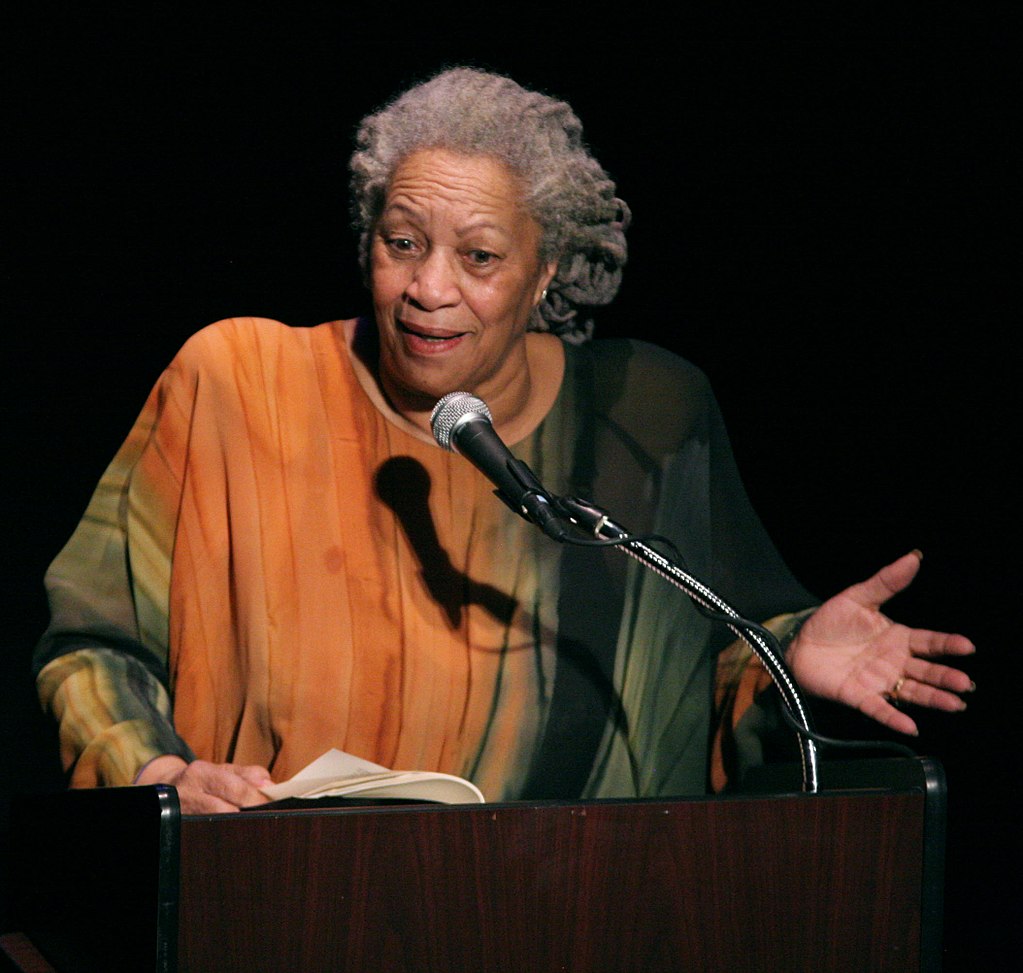92 Toni Morrison (1931 – 2019)
Amy Berke; Robert Bleil; Jordan Cofer; and Doug Davis

Photographer Angela Radulescu
Wikimedia Commons
CC BY-SA 2.0
The first African-American to win a Nobel Prize for Literature, Toni Morrison is one of the most important American authors of the past century. In the eleven exquisitely crafted novels she has published to date, Morrison combines folk and postmodernist storytelling techniques to explore what it means to be both black and a woman in America. Morrison was born in Loraine, Ohio, and earned a Bachelor’s degree in English from Howard University and a Master’s Degree from Cornell University. Although she began writing creative fiction at Howard, Morrison worked primarily as a college professor in the decade following her graduation from Cornell, teaching at Texas Southern University and then at Howard. In 1964, Morrison divorced the husband she met at Howard, moved to New York, and worked as a senior editor for Random House publishers, where she championed the writing of several notable African-American authors including Angela Davis and Toni Cade Bambara. Morrison continued to write and teach at colleges while working at Random House, publishing her first novel, The Bluest Eye, in 1970. Since then she has taught at numerous institutions, including schools in the New York state university system, Yale, Bard, and finally Princeton, where she is currently an emerita professor. In addition to working as an editor, novelist, and professor, Morrison is also a prolific essayist and public intellectual, publishing editorials in venues such as The New York Times and appearing on popular TV programs such as The Late Show with Stephen Colbert. She has also written three children’s books with her son, Slade Morrison, and the libretto for an opera based on the life of the American slave Margaret Garner, who is also the inspiration for her Pulitzer Prize winning novel, Beloved (1987).
Morrison describes the postmodernist literary technique she has developed in her novels as that of “enchantment,” a blending of historical realism with the myths and supernatural tales she learned as a child. “That’s the way the worldwas for me and for the black people I knew,” she tells Christina Davis in a 1986 interview in Conversations with Toni Morrison. “There was this other knowledge or perception, always discredited but nevertheless there, which informed their sensibilities and clarified their activities…they had some sweet, intimate connection with things that were not empirically verifiable.” Examples of enchantment abound in Morrison’s work. In her novel Song of Solomon (1977), a story of a man coming to terms with his African-American identity, one character gives birth to herself and thus does not have a navel while another learns to fly as legendary African tribesmen once did. In Tar Baby (1981), a novel about people who trap themselves in self-deceptions, Morrison structures her tale around the African-American fable of the trickster rabbit who gets caught by a deceptive figure made out of tar. In Beloved, a powerful novel about the legacy of slavery, the ghost of a slain baby haunts the home of an escaped slave. The short story “Recitatif” included here, originally published in Amiri and Amina Baraka’s anthology Confirmation (1983), is the only short story that Morrison ever published. While it does not directly reference the supernatural, “Recitatif” features other postmodernist techniques common to Morrison’s work, from its estranging opening lines to the historical revisionism that the two central characters, Twyla and Roberta, engage in over the story’s course.
“Recitatif”

Or listen to LeVar Burton Read this work in two parts:
Part 1: https://podbay.fm/p/levar-burton-reads/e/1585627200?t=95 &
Part 2: https://podbay.fm/p/levar-burton-reads/e/1586232000?t=30

